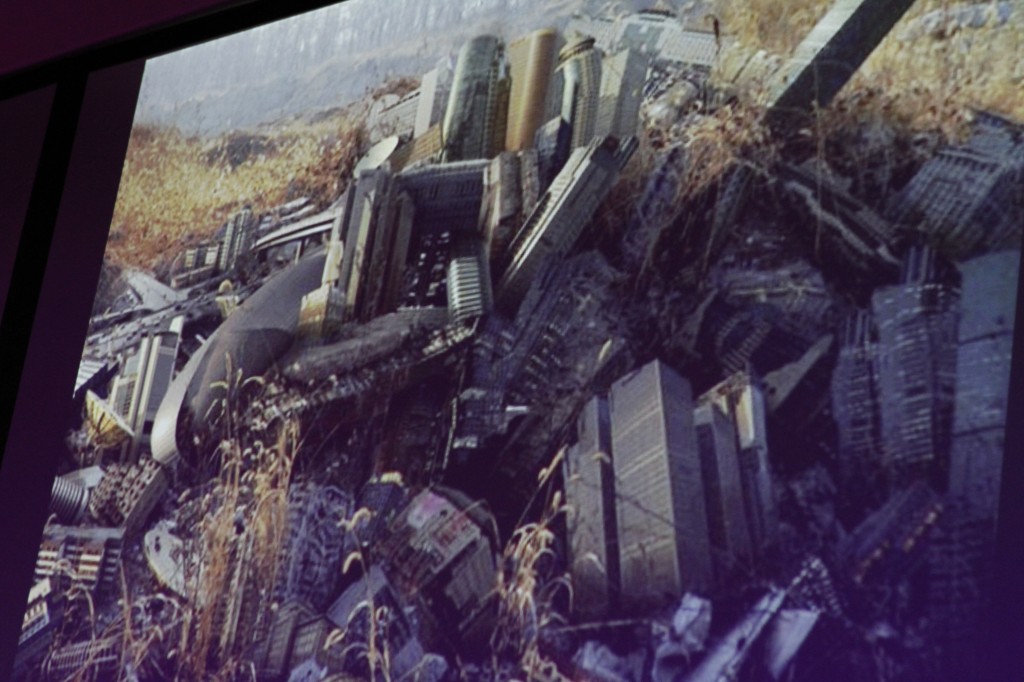“Why does it matter that we keep cities complex but incomplete?” asks Dutch-American sociologist Saskia Sassen on the TED 2013 stage in late February in Long Beach California. One reason, she says, “is the obsoleteness of buildings,” and she shows photos of buildings taken in Shanghai.
She’s a Robert S. Lynd Professor of Sociology at Columbia University and Centennial visiting Professor at the London School of Economics. Sassen is known for coining the term global city.
She says, “the city is a space historically for those without power, it’s where prisoners and immigrants arrived. It’s the capacity of an urban space for these people can go to create. It’s where gays could go, be accepted and work on projects. It’s where things moved, grew and innovated.”
assen asks as we move into the future and think about what cities mean to us and will mean to us, “what are the spaces that can create a distance between that suspect world and us?” She asserts that it belongs in imperfect cities. In a high tech city, the logic of the engineer will dominate it. We can still execute our projects and unsettle the technology – it’s a sense of open source technological system within these spaces in cities. She says that we need divergence of the inhabitant and the engineer and that we have to find a way to keep our cities complex but also incomplete.
In global cities, you have urban capital: it’s the sum of knowledge of all the specialties. It’s a place that has its own speech and its own way of talking back. Consider how many cities have been burnt down and rebuilt. Ending her talk, she re-asserts again that we will have a lot of dead obsolete cities unless we ensure that they are kept complex but incomplete.

Renee Blodgett is the founder of We Blog the World. The site combines the magic of an online culture and travel magazine with a global blog network and has contributors from every continent in the world. Having lived in 10 countries and explored over 90, she is an avid traveler, and a lover, observer and participant in cultural diversity. She is also the founder of the Magdalene Collection, a jewelry line dedicated to women’s unsung voices and stories, and the award-winning author of the bestselling book Magdalene’s Journey
She is founder of Blue Soul Media and co-founder of Blue Soul Earth as well as the producer and host of the award-winning Blue Soul CHATS podcast, that bridges science, technology and spirituality. Renee also founded Magic Sauce Media, a new media services consultancy focused on viral marketing, social media, branding, events and PR. For over 20 years, she has helped companies from 12 countries get traction in the market. Known for her global and organic approach to product and corporate launches, Renee practices what she pitches and as an active user of social media, she helps clients navigate digital waters from around the world. Renee has been blogging for over 16 years and regularly writes on her personal blog Down the Avenue, Huffington Post, BlogHer, We Blog the World and other sites. She was ranked #12 Social Media Influencer by Forbes Magazine and is listed as a new media influencer and game changer on various sites and books on the new media revolution. In 2013, she was listed as the 6th most influential woman in social media by Forbes Magazine on a Top 20 List.
Her passion for art, storytelling and photography led to the launch of Magic Sauce Photography, which is a visual extension of her writing, the result of which has led to producing six photo books: Galapagos Islands, London, South Africa, Rome, Urbanization and Ecuador.
Renee is also the co-founder of Traveling Geeks, an initiative that brings entrepreneurs, thought leaders, bloggers, creators, curators and influencers to other countries to share and learn from peers, governments, corporations, and the general public in order to educate, share, evaluate, and promote innovative technologies.









